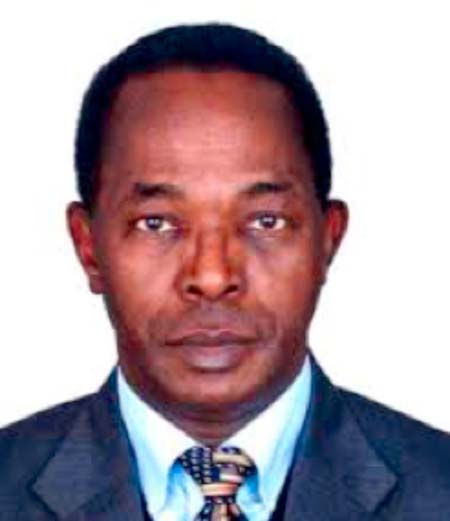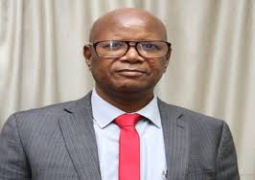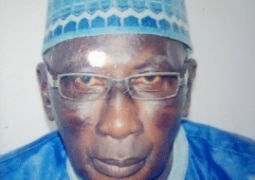
In this country, we see somethings fundamentally wrong and we pretend that these are inconsequential as long as it does not disturb the peace and as long as we can defend the indefensible in the National discourse. This is the issue with the alleged widespread corruption in the system. We continue to largely brush it under the carpet as if it does not impact on the economic well-being of the country. And so, institutions and public officials involved in such wrong doings continue to hold the belief that there are no consequences in governance about corruption. Yet, corruption is excessive vanity and moral bankruptcy. When morals and values are sidelined in the conscience of men, men will not fear to engage in corruption. Hardly a week or month will pass by without news of alleged corruption somewhere in the system. Monkey works, baboon eats has become the order of the day. It is in the supreme interest of the Nation that this cancer be exterminated in the society. The price of wrong doings will live after them on the DAY OF REKONING. It may be more severe than the actions taken on the implementations of the Janneh Commission. Gambians are therefore advised to brace up for the eventuality. But the supreme interest of the Nation matters most in any National discourse. For the country to have a new constitution is in the supreme interest of the Nation. When values are sidelined in the conscience of the political leadership, the country will be in a dilemma in terms of system change and having a proper legal framework for democratic governance. The battle for political survival is at the core of the current constitutional impasse the country is faced with in recent times. There cannot be a new Gambia without a new constitution. One wonders why the political leadership should put the country into ransome over a new constitution. There is no excuse for this because the coalition agreement of 2016 in which seven political parties consented to, called for a new constitution. Something is therefore fundamentally wrong with political behavior in this country. The question is, has democracy been brought to its logical conclusion without a new constitution. It is to be noted that the express will of the people in the 2026 leadership contest matters whether there is a constitution in place or not. It is therefore hoped that reason will prevail in the political system for a new constitution in the supreme interest of the Nation. Moving on, let us examine other aspects of the National interest. Promoting environmental sustainability and activism is in the supreme interest of the Nation. The fisheries sector is one of the productive sectors of the economy. There has been constant public outcry about its mishandling, mismanagement to the extent that Gambians continue to face fish shortages and where these are available, its prices are killing consumers. Fish has become an expensive commodity in the country. It is therefore, in the supreme interest of the Nation for the government to review the sector. Our waters are in the hands of several fishing licences issued to foreign countries and unfair agreements reached with the state, all of which does not serve the country’s economy and does not meet the needs of the people for fish products. We see how a neighbouring country reviewed all fisheries licences issued to foreign companies by a former regime and put the resources back in the hands of the people in the country. Fish products are now in abundance and affordable to the citizenry in that country. The industrial fishing taking place in the country’s waters is depleting our resources and making it difficult for our fishermen to come up with catches that will meet the market demands. One wonders whose interest is this laissez faire attitude benefitting. Certainly, it is not in the supreme interest of the Nation. To the business sector, the empowerment of Gambian owned business entities such as the QGroup, Jah oil companies, GACH Group, TAF Estates, Trust Bank Ltd, Gamcel, and other Gambian owned factories, rice farms and poultry owners, etc, is in the supreme interest of the economy of the country. Protecting these business entities should be at the core of government economic policy decisions. We are hearing what is now taking place in America under the Trump administration that places emphasis on America First and the growth of American industry. Why can’t we in this country adopt similar economic diplomacy moves in the supreme interest of the Nation. There should be no opposition when Gambian owned businesses are empowered by the government. We are our own enemy if we fail to ensure the indigenisation of the business environment and to create National wealth to the benefit of the people and the economy. The Central Bank of The Gambia, in its monetary policies, should be seen to complement the empowerment of Gambian owned business outlets to ensure that economic prosperity has spread effects or trickle down effects on the citizenry. The ideas of too much liberalism in economic and monetary policies do not augur well with the realities of a poor country like ours with weak purchasing power of the people. This is not an advanced economy. We must take into account the sociological position of the people, especially those in rural areas of the country. We must come up with prescriptions that suit our situation as a country and a people. The supreme interest of the Nation is best served by our own entrepreneurs and business entities. For example, let us reflect on two important and significant moves by Gambian business entities. When funds were not forthcoming for the procurement of vehicles for the OIC Summit, it was the QGROUP management that moved fast to pre-finance the procurement of the vehicles to save the country from embarrassment. The event was for the Gambia and not for the QGroup. The company acted in the supreme interest of the Nation. When Senegal abruptly banned Basalt import into the country, the owner of GACH, Abubacar Jawara acted fast and brought millions of tons of Basalt from another country and the Gambian market is now full of the products. The company acted in the supreme interest of the Nation. It is therefore logical that there should be no opposition to the empowerment of Gambian own business enterprises. It serves the supreme interest of the Nation. In conclusion, readers may wish to know that I personally served in a trading partner country of the Gambia, where Africans were not allowed to own shops and other business outlets. If that is not protectionism and indigenisation then what else could it be called. The supreme interest of the Nation must assume priority attention in the National discourse for the country to move forward.




